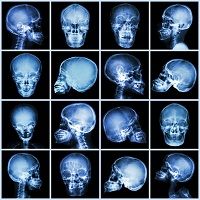Article
Early HIV Infection Commonly Yields Neurologic Problems
Author(s):
Neurologic abnormalities are apparent just days after human immunodeficiency virus (HIV) infection, according to a new study published in Neurology.

Neurologic abnormalities are apparent just days after human immunodeficiency virus (HIV) infection, according to a new study published in Neurology.
Researchers from the University of California San Francisco (UCSF) and Yale University uncovered the source of the neurological issues, identified the stage of disease progression during which they are likely to manifest, and reinforced the importance of early treatment in reducing symptom severity.
“In the early days of the epidemic in San Francisco, approximately 10% of patients with recent HIV infection presented with dramatic neurological disease. But that was likely due to patients coming in early because of the severity of symptoms they were experiencing,” senior author Serena Spudich, MD, associate professor of neurology at Yale, said in a news release.
The cohort consisted of 139 participants who were recently infected with HIV. From the time of infection to the time of study enrollment ranged from three to 56 days. Patients would not even test positive for HIV on the common antibody tests since it’s during such an early infection stage.
- Related: One Step Closer to an HIV Vaccine
“This is one of the first comprehensive studies scrutinizing the involvement of the nervous system in early infection,” said co-author Victor Valcour, MD, PhD, professor of neurology at UCSF.
A total of 73 patients (53%) experienced neurologic issues by 12 weeks after diagnosis. These problems included 33% patients with cognitive deficits, 25% with motor issues, and 20% with neuropathy. The researchers noted that many of them experienced more than one symptom.
Forty-nine percent of these conditions were present at the time of diagnosis. This means it only takes a matter of days for HIV to impact the nervous system.
“We were surprised that neurologic findings were so pervasive in participants diagnosed with very recent HIV infection,” said lead author Joanna Hellmuth, MD, MHS, clinical fellow in UCSF’s Department of Neurology.
On the positive side, these were no structural abnormalities observed through neuroimaging and these issues tended to be mild and resolved after a patient begins antiretroviral therapy (ART). However, one participant in this study developed a severe condition, Guillain-Barré Syndrome.
These findings reaffirm the recommendation that patients begin ART as soon as they are diagnosed with HIV. It also highlights the importance of taking neurological aspects into consideration as researchers continue working to find a cure. The team plans to continue following this study population in order to identify potential long-term abnormalities.
Also on MD Magazine >>> HIV Testing + PrEP + Early Treatment = Reversing the Epidemic





